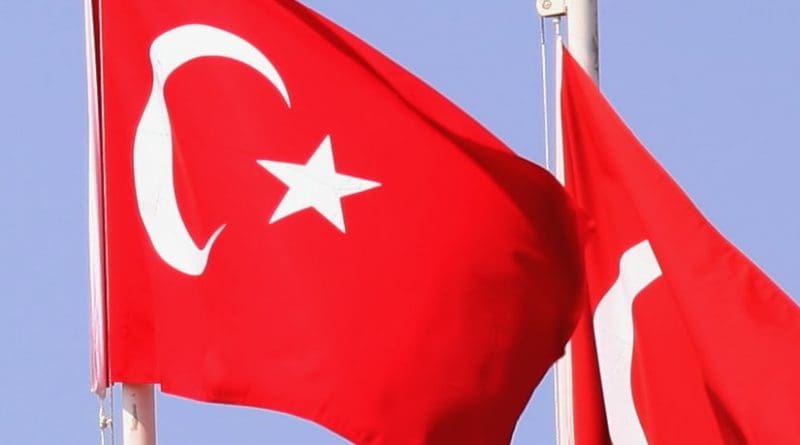Turkey’s Constitutional Reform – OpEd
By Press TV
By Hassan Beheshtipour
Through expansive changes in the army, Turkey intends to pave the way for constitutional reforms and eliminate the thought current associated with the officers who resigned.
Turkish President Abdullah Gul appointed General Nejdet Ozel as the Turkish Land Force Commander and Deputy Chief of General Staff.

The move was in reaction to the retirement of Isik Kosaner, Turkey’s Chief of General Staff. Kosaner and the Commanders of the Turkish army’s land, navy, and air force resigned collectively and simultaneously on Friday July 29 in a move to show protest.
The Prime Minister’s office announced that the senior Turkish Army Generals have not resigned and have merely announced their retirement. However, General Kosaner described his resignation as necessary and said he has resigned in protest to the ongoing prosecution of around 250 army officers who have been arrested in the past months on charges of conspiracy against the government of Mr. Erdogan.
General Kosaner, installed as Chief of General Staff early 2010, announced clearly in a message on the occasion of bidding farewell to his former colleagues, ” Dear friends, The surveillance of some of the army officers drove me to relinquish my duty and to demand my retirement. I expect that, like the past, the heroic army personnel would from this point on with power, audacity, and absolute discipline, in line with attaining our objectives, continue with resolute faith the course of progress with confident strides.”
General Ozel’s assumption of Turkey’s Chief of General Staff is anticipated to be certified in Turkey’s cabinet meeting, because according to the reforms made to Turkey’s Constitution, which were approved by the Turkish people in the referendum held on September 12, 2010, the Turkish government has veto rights in the appointment of army commanders.
The Turkish army has, since the WWI when Kamil Pasha overthrew the Ottoman Empire and founded modern Turkey in 1923, as the guardian of the secular regime, always played a key role in the politics of this country. On the other hand, the Turkish Army in its most important role in Turkey’s political scene has twice through all-out coups d’etat (May 27, 1960 and September 12, 1980) and twice through pseudo-coups d’etat (March 12, 1971 and February 1997) has carried out regime change.
In the last case of which some members of the Turkish Army in 2003 intended to topple the government of Prime Minister Tayyip Erdogan who had won a landslide victory in the elections on November 3, 2002, but with the revelation of their plan this coup was neutralized.
According to Turkey’s security officials, in this round, following the reinforcement of the position of the Islamist Justice and Development Party, a group called the Ergenekon, consisting of officers and their supporters in Turkey’s other power centers, aimed to set the stage for a coup d’etat by executing a four-phased plan including inciting urban unrest, assassination of the country’s leaders and creating false insecurities, but they were unsuccessful.
The Erdogan government is in fact pursuing multiple objectives through its prompt acceptance of the resignation of Turkey’s senior Army Commanders:
First, with this move the Turkish government showed that it is firmly standing up against the pressure of the military for the release of their fellow personnel.
Second, it is resolutely pushing ahead with its trend of restricting opposition in rival parties such as the Republican People’s Party and the National Movement Party.
Third, reforms in Turkey’s Constitution is impossible without the necessary reforms in the army , that’s why Erdogan prefers to use the reforms in the Constitution approved by the nation in a referendum in September 2010 to pave the way for the trial of the military personnel charged with plotting a coup in ordinary courts. This will be the most important measure taken to control potential future military involvement in Turkey’s political arena.
Another important point that should not be ignored is the important news that the Turkish Army is pressuring Erdogan’s government to not interfere in Syria’s affairs. Should the veracity of this statement be confirmed, one of the reasons behind the removal of the army commanders can be assessed as the elimination of the opponents of Turkey’s negative role in Syria. Of course, it is not yet clear how serious this difference of opinion is and to what extent the change in army commanders will help change the course of Turkey’s meddlesome policy in Syria.
The Erdogan government, to free itself of the negative influence of the military, has made its decision to cleanse the army of the military personnel who resist organized change and in this way is trying to prevent the Army from staging periodical coup d’etat.
Although most of those who were arrested on coup-related charges are Laic and Nationalists, it is said that they are against the presence of US and Israel in their country.
They, besides believing in the separation of religion and rule, are staunch Nationalists and extremists, and contend that the proposed Islam by Erdogan and Abdullah Gul’s Justice and Development Party is an American version of Islam, so the elimination of this Nationalist current can help Erdogan direct the peaceful coexistence of the West and Islam with more liberty.
Moreover, it is said that the Ergenekon group is opposed to Turkey joining the European Union and its remaining in the North Atlantic Treaty Organization (NATO).
Also when Turkey joined the coalition to attack Libya, the newspapers close to the Ergenekon group raised their voice louder than other opposition newspapers. These papers described NATO’s offensive against Libya as another Crusade.
The elimination of this current of thought is as difficult as the struggle of secular politicians to eliminate Islamic currents from the political scene in the 1980s. The outcome of the 2007 and 2011 elections showed that this policy has backfired.

